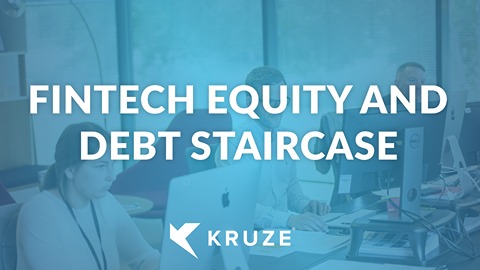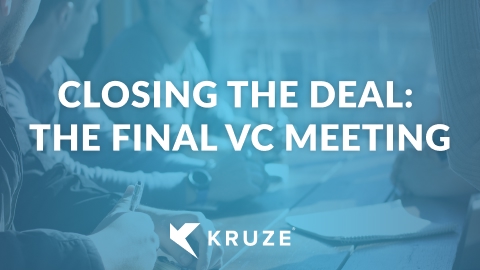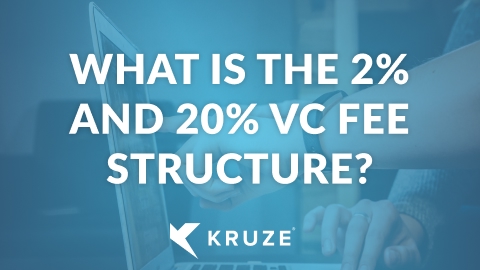
What is a Search Fund?
Originating in the early 1980s, search funds are an investment vehicle in which one or more individuals raise money from individual investors to identify, acquire, and scale a private company. The searcher, the individual (or team) interested in acquiring and operating the startup, raises money from aligned investors to purchase from a seller, often the CEO at the privately-owned company. The typical strategy for a search fund investor is to hold the investment long-term, more specifically with a 5-to-10-year time horizon. A search fund is an increasingly popular way for entrepreneurs to get C-Suite experience, and are becoming more and more common out of top business schools, where students with complementary skill sets - and access to capital - team up to find attractive businesses to own and operate.
What is the Search Fund Lifecycle?
To better understand the search fund, let’s examine the lifecycle.
Stage 1: Fundraising
The searchers begin by establishing the fund. In most cases, a search fund is structured as an LLC or LP. This means that investors in the fund will receive membership units in the entity, in contrast to a C-Corp that issues shares of stock. We recommend seeking legal counsel when forming a fund to identify which option is better for your fund. Although the search fund will be an LLC or LP, the companies targeted for acquisition are most commonly C-Corps or LLCs. One important item to note is that LP or LLCs business entity types are different from the corporate structure that most venture capital funds like, the Delaware C-Corp. (Side note, read our article on why VCs like to invest in Delaware C-Corps) .
It is noteworthy that there are often two phases of capital raising. The first is search-related capital. This capital will cover expenses incurred during the search including wages, travel, and other administrative costs associated with the search. Investors will often sign a legal agreement granting them the right to invest further capital when the acquisition takes place.
The second fundraising phase is acquisition-related capital, and it occurs after the searchers have identified their target company during Stage 2 of the fund lifecycle.
Stage 2: Search and Acquisition
For many reasons, this stage is long and the most involved taking up to 24 months. Somewhere between one-quarter and one-third of all search funds fail at the acquisition stage.
The Search
The goal of the search is to identify a target company and viable business model. The type of valuation analysis done by the fund on potential businesses will differ based on the focus of the searchers.
The Acquisition
Once the searchers identify their target company, they direct their attention to the acquisition process. This often includes price negotiations, M&A due diligence, and negotiating the structure of the acquisition capital with the seller. Although the leanness of a search fund has its benefits, the searchers are often competing directly with lower to middle market private equity firms with professional origination teams. For this reason, many searchers target startups that are not actively for sale. Often, the searcher tries to get the seller to take a Seller Financing Note. This effectively means that a portion of the purchase price is paid out to the seller in the future making the seller a lender to the company.
It is important to remember that the searchers will need to raise a second round of capital to complete this transaction. This capital typically comes from the entity/people who originally funded the searchers. There is a major item to note that makes this a different journey from one where a founder or team of founders start a company from scratch. When a founder starts a startup, they own 100% of the business until they raise outside capital. But a search fund, by its very nature, requires that the outside capital will own part of the business right after the acquisition - often the majority of the business. Therefore, the team running the search will have a lower ownership percentage than they would if they had started a company. The tradeoffs are obvious - acquiring an operating business brings revenue, product, cashflow, etc., all of which the typical startup does not have.
During this stage, the searcher should conduct a thorough examination of the target company’s financial statements, capital structure, core metrics, and historical cash flow before the deal closes. If the small-to-medium-sized business does not have reliable financial statements and core metrics, they should be built during this stage of the process. We highly recommend partnering with a CPA firm experienced in M&A due diligence. The entire deal process can take up to 12 months.
Kruze Consulting has a thorough Startup VC and M&A Due Diligence Checklist covering the finance, accounting and tax items that are frequently required during the due diligence process along with priority levels. We cover the due diligence process more in depth in the Accounting for Search Funds section below.
Stage 3: Operation and Growth
Assuming a successful acquisition, the next stage in the search fund lifecycle involves operating the private company for the next 4 to 10 years. The searcher usually becomes the CEO of the acquired startup; if it is a team, then the team assumes operating roles within the business. Depending on the size of the startup they enter, they can use their background and skillset to add value in product development, vision and strategy, product marketing and pricing, managing runway, changes to capital structure, and ideation in other critical areas that help startups scale successfully. Although there are many ways to get there, the end goal of this stage is to improve the value of the business anticipating the materialization of an exit opportunity.
Stage 4: Exit
If all goes well in the first three stages, the final stage generally involves the searchers exiting the company after they have operated it for a while, and hopefully grown the business and improved the operations. The most common type of successful exit for a private company is through a direct sale to a public company or private equity firm, an IPO, or an alternative liquidation event.
Why Search Funds?
Many entrepreneurs ask, “why is a search fund a good idea for a founder?” They ask this with a certain skepticism along with other questions in the spirit of why they should start an entrepreneurial endeavor with minority ownership in their company. The best answer to this is surprisingly simple. They are asking the wrong questions. There is more than one type of entrepreneur. The questions that young entrepreneurs should be asking relate to interests, background, and skillset.
Are you the type of individual that wants to take a company from 0 to 50? If so, a search fund is unlikely to be the right fit for you. Are you the type of individual that might excel at scaling a company from 100 to 1,000? A traditional startup founder incorporates a company without a working product or service, no customers, a small team, and no revenue. A searcher enters a company with a live product or service, customers, revenue, and much more.
The skillset required of an early-stage CEO is a different skill set than the one required of a Series A+ startup or a boot-strapped startup aiming for higher revenue multiples, EBITDA margins, or profitability. In which type of scenario are my background and skillset more conducive to success? An MBA student with a background in private equity, investment banking, or management consulting may have the ideal skillset for solving the problems Series A+ startups face. A software developer foaming with new vertical SaaS ideas may be better equipped for a traditional founder route.
Since most acquired companies also come with cash flow, this means that the team or individual leading the search and taking over the business has de-risked their entrepreneurial journey vs. a true startup.
If our only question is “how can I gain and retain the most amount of share in a private company,” we are unlikely to find an answer catered to the individual. This is like asking “how can I make the most amount of money in my career” forgetting to ask questions pertaining to happiness, interests, and skillset. To summarize, the question entrepreneurs should ask is “which type of entrepreneurial venture is right for ME?”
After learning about the search fund lifecycle, one can imagine why the experience and economic opportunity is enticing to young entrepreneurs and MBA students.
Accounting for Search Funds
Accounting for search funds is not the same as accounting for the acquired business. We recommend partnering with a competent CPA with, in the case of the search fund, fund accounting experience, and, in the case of the acquired company, startup accounting experience.
As mentioned above, it is important for the acquired company to have accurate financials statements prior to acquisition. This means an income statement, balance sheet, statement of cash flows, and AR Aging completed on a GAAP, accrual basis. Having the three major financial statements on an accrual basis is critical for proper revenue recognition, depicting the relationship between revenue and expenses (the matching principle), budgeting, and 3-statement modeling. Once these are determined accurate, the searchers can analyze historical and forecasted future business performance through core unit economic metrics like Customer Acquisition Cost (CAC), Churn Rate, and Customer Lifetime Value (LTV). Depending on the size and stage of the company, trends in margins such as EBITDA, Gross Profit, and Net Income will also be useful metrics.
Once the deal closes, the searchers will need to maintain accurate financial statements and forecasts throughout their time operating the business. A common solution for startups is to partner with a full-service CPA and CFO firm like Kruze Consulting to accurately handle the back office financial tasks at a reasonable price. Kruze offers a range of startup services including basic bookkeeping on a GAAP basis, accounting, tax, HR, and FP&A.
Search Fund Performance
According to the Stanford Graduate School of Business, 73% of searchers that make it through the acquisition stage have successful exits with a greater than 1X return and 10% with greater than 10X return. Although the 10% return rates are similar to venture capital 10% return rates, the downside risk of the Search Fund is significantly less.
Earlier in 2022, Peter Kelly and Sara Heston released a case study on the performance of Search Funds in recent years for the Stanford Graduate School of Business. For those interested in learning more about the Search Fund compensation, the lifecycle, the number of Search Funds launched, and investor rates of return, we highly recommend the read!















